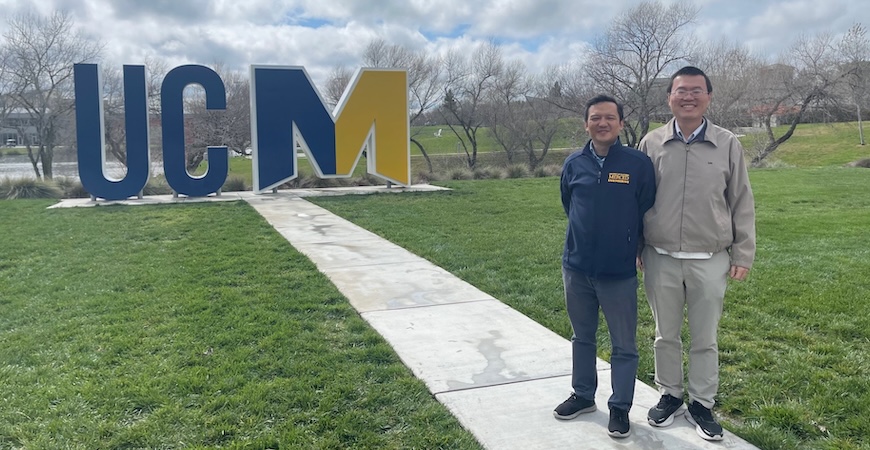
A new program led by UC Merced in collaboration with Lawrence Berkeley National Laboratory aims to train graduate and undergraduate students to work in the rapidly growing industry of quantum information science and technology, or QIST.
The U.S. Department of Energy's RENEW (Reaching a New Energy Sciences Workforce) initiative funds the program, which is led by physics Professor Chih-Chun Chien, computer science and engineering Professor Xiaoyi Lu and LBNL staff scientist Costin Ianu. The grant is roughly $1.1 million.
"Quantum science has transformed into a thriving industry with the urgent need for a new generation of skilled workforce," they wrote in their abstract. "The goal of the program … is to cultivate future leaders of underrepresented and disadvantaged groups in QIST."
Students will receive interdisciplinary training in physics, computer science, chemistry and materials science and develop skills needed to work with quantum hardware, including error-correcting quantum computers. Two to four Ph.D. students and two to four undergraduates will take part in the three-year endeavor.
The program will leverage the relationship with LBNL to teach and extend machine learning and artificial intelligence techniques for quantum program development and verification, large-scale analyses and extracting relevant information.
"The training on quantum information and computation will prepare our UC Merced students for the emerging job market of quantum technologies," Chien said. "These include, but are not limited to, quantum device engineers, quantum system integrators, quantum programmers and software testers, and researchers for advanced quantum science and technology."
Participants will be recruited from among graduate students in physics, chemistry, computer science and material science. Students don't have to come from a QIST background to participate - the program will offer introductory QIST courses and seminars.
The program will feature weekly group meetings, peer mentoring, close interactions, and workshops on professional development and career planning. Trainees will present their research at conferences and workshops and publish their results.
Researchers said the program will promote inclusion in QIST by giving the underrepresented and first-generation students at UC Merced high priority to participate in the training and research.
"This collaboration between the Department of Physics and the Department of Computer Science offers a unique opportunity to co-develop impactful quantum computing courses and educational materials, providing valuable learning experiences for our students," Lu said.
Besides preparing students for successful careers in QIST, the program will address urgent needs for energy conservation and efficient computation that align with DOE missions. Students will also have opportunities to collaborate with other universities, LBNL and industry partners.
"The award will bring a solid integration of research and education among physics and computer science at UC Merced, with the help from Lawrence Berkeley National Lab," Chien said. "Through the research and education efforts sponsored by the award, we aim to prepare UC Merced for the incoming quantum revolution and transform our UC Merced students into future leaders in quantum science and technology."
Graduate or undergraduate students interested in joining the program are invited to contact the researchers at cchien5@ucmerced.edu and xiaoyi.lu@ucmerced.edu.



